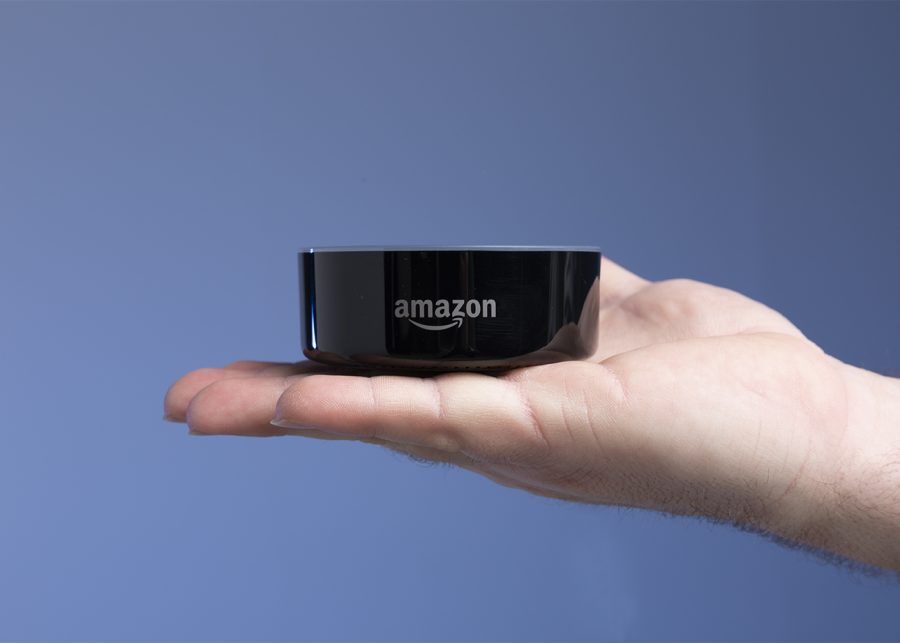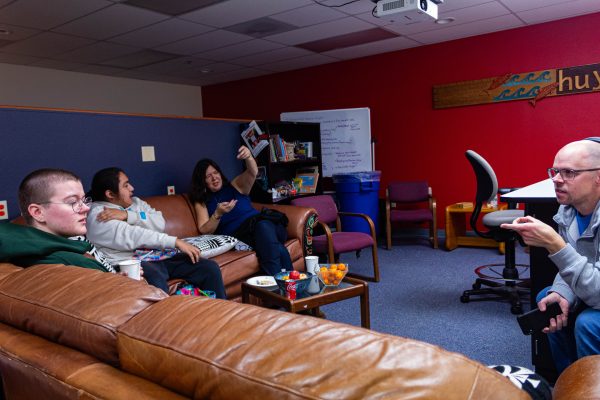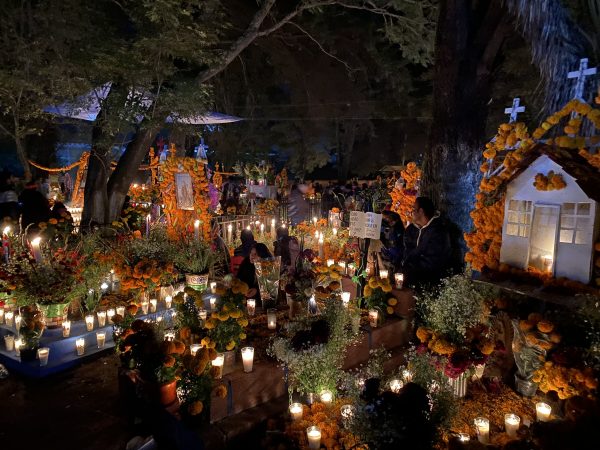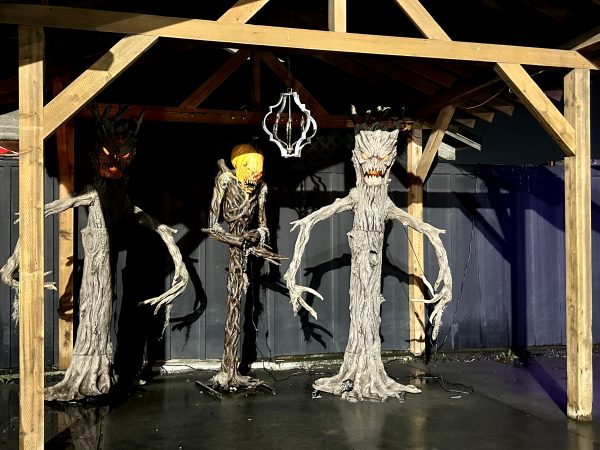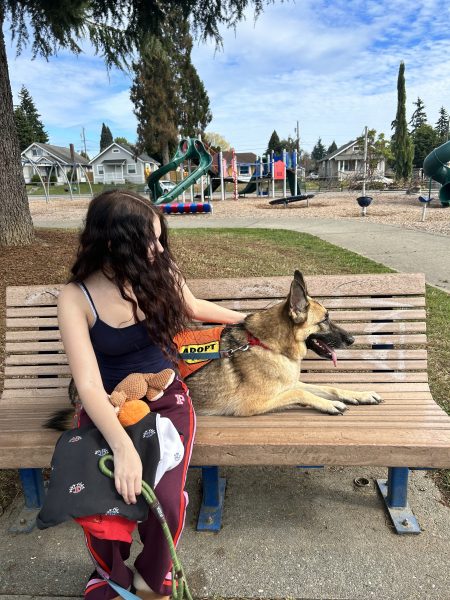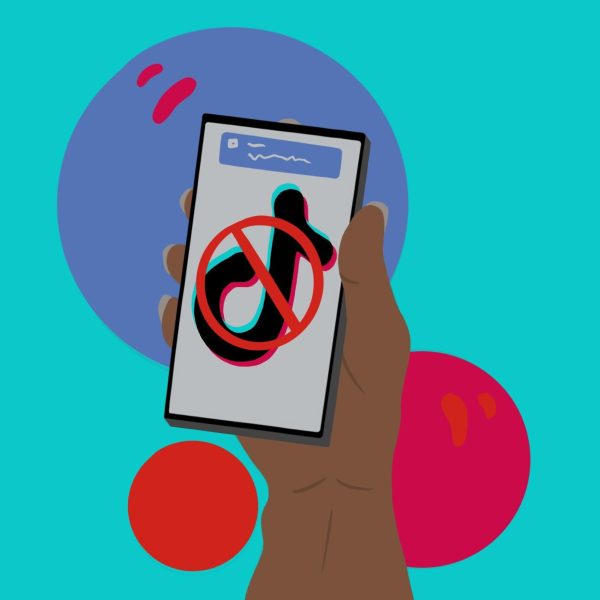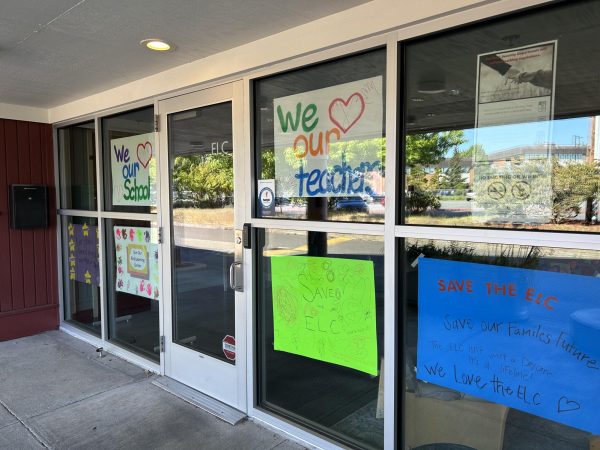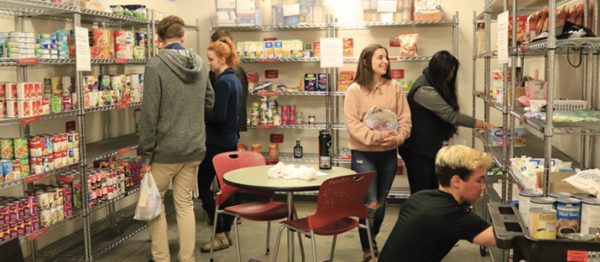What’s up with the Alexa on Demand? An Update on Campus Technology
Amazon’s Alexa pilot program came to campus this quarter. After three months of beta testing the results are in. So far the Alexa pilot has brought both functionality and entertainment to the campus community.
As reported by The Clipper in February, EvCC was provided with $1,000 and 25 Amazon Echo devices by Amazon.
Tim Rager, EvCC’s Executive Director of Information Technology (IT), and William Frankhouser, IT lead web developer for EvCC, brought the pilot to campus to test new services and new technologies on campus. There are currently 18 Amazon Echo devices located around campus. The pilot is expected to last through July.
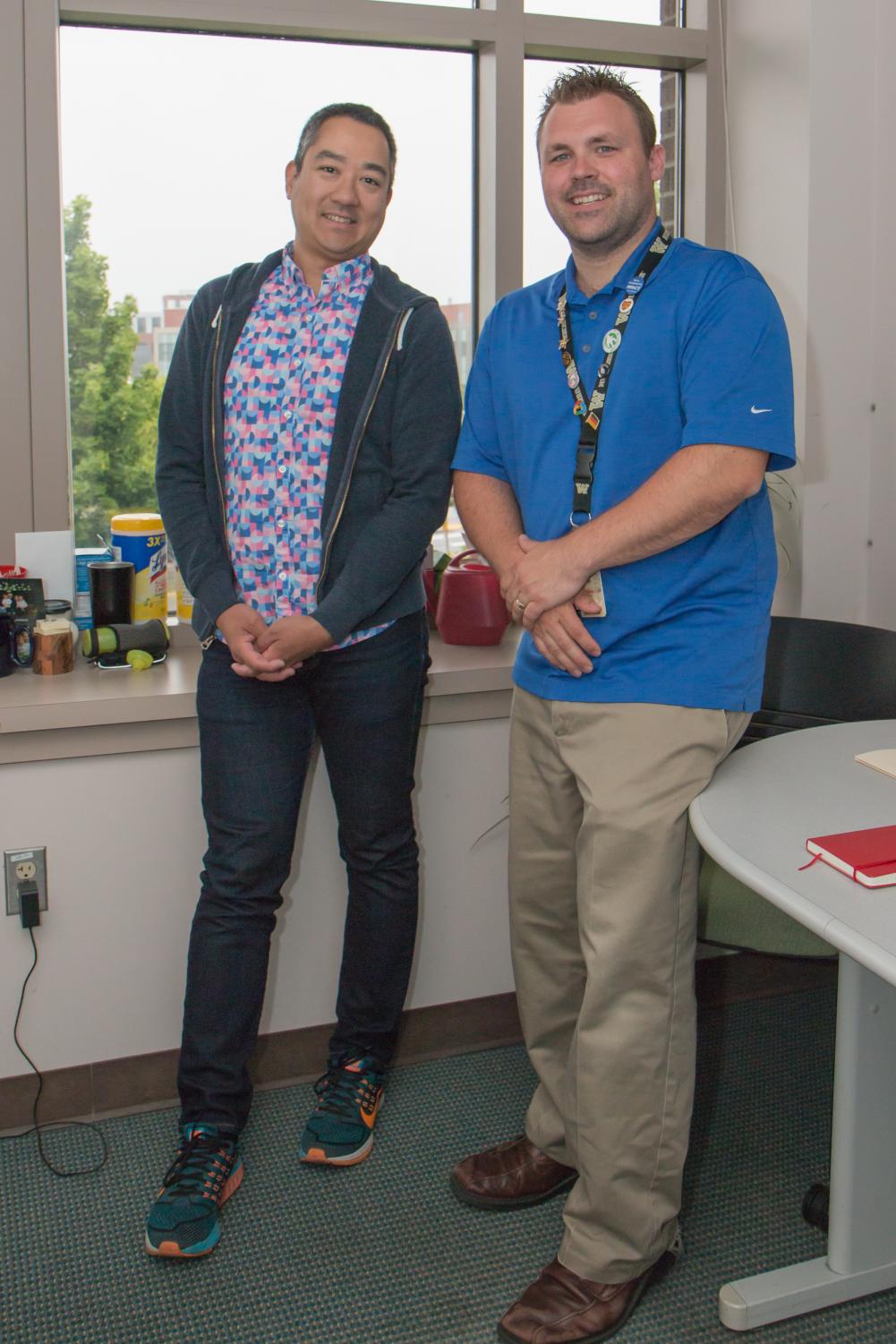
Tim Rager, EvCC’s Executive Director of Information Technology (left), and William Frankhouser(right) are responsible for bringing the Alexis pilot program to campus.
The program has seen a few snags, including having to add a new pathway to invoke the private skills or EvCC specific questions called “Ask Feather Star.” Frankhouser also explained that the answers Alexa gives can sometimes be too long. He and his team are currently fixing those and other bugs as they occur.
Cosmetology in Marysville and East Campus in Monroe have both requested more languages be available on Alexa. Of the few questions that have been sent to Rager and Frankhouser, some have been for more dynamic content like the ability to look up jobs on campus.
“Part of that is also the feedback. If there’s certain questions we do want available, that we find helpful,” Said Frankhouser, “Fill out that feedback, because I see that and we can implement that pretty quickly.”
The Echoes have been used at all 18 locations since the program started. Despite being at the location for only a few weeks, Mountain View Hall has seen the most invocations at just over 200 uses according to a usage report provided by Rager and Frankhouser.
“I think it’s cool,” said Jordan Scroggins front desk staff at Mountain View Hall and resident assistant at Cedar Hall, “I think it just gives the students a different way. A different resource, I should say, for students to have. A different outlet so in case we aren’t here, it’s here.”
The Advanced Manufacturing Training & Education Center (AMTEC) has a high invocation rate at around 100 according to the usage report.
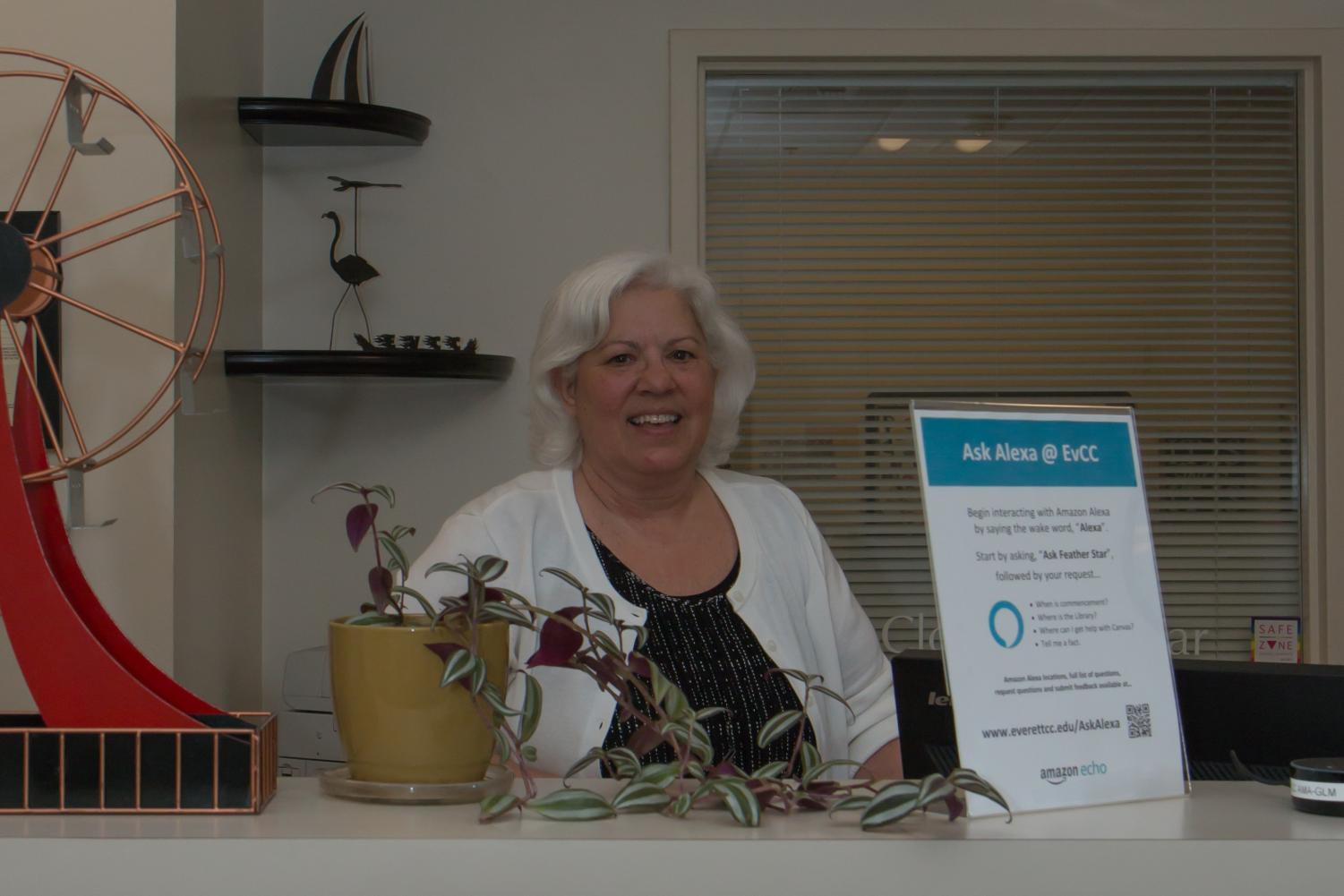
Robyn Kibby, Program Specialist at AMTEC poses for a photo at the front desk at AMTEC.
“We do have students come in and try it,” Said Robyn Kibby, Program Specialist at AMTEC, “Jokes, the weather, directions someplace. I’m like ‘No. No, that’s not what she’s here for’. We do have some faculty that are a little funny that way too. It’s new so it’s fun.”
Kibby also expressed that there isn’t much student traffic through where the Alexa is in the front office. Noting that it is mostly faculty and outside traffic that passes through the area.
Most invocations have been general or entertainment invocations. Many students have been using the devices for general questions as well as to access music.
“Once people come here they are actually surprised there’s an Alexa, because they don’t know it,” said Nurnissa Mohd Rozi, Student Ambassador in Student LIFE. “So far having Alexa is… getting a lot of information but in a fun way, because it’s like technology. Yeah, I feel it’s fun.”
Going forward, Rager and Frankhouser are in talks to start working with Slalom a media evaluation company on how to improve Alexa’s usage and functionality for the college. Some ideas are to place the Alexas in more permanent ways in only the most used areas. A few more ideas are to invite individuals or groups who are involved in the campus to test the private skills on personal devices.
“Let’s say the pilot ends and it doesn’t go anywhere else I still think we learned a lot,” said Rager.
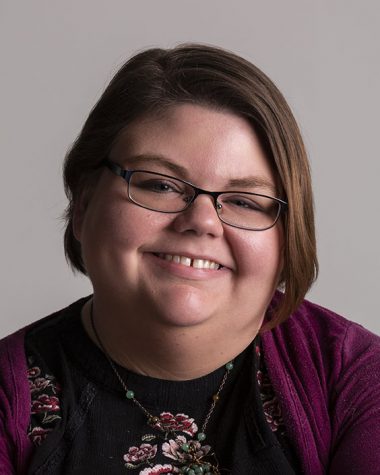
What interests you about journalism?
I think what interests me most about journalism is the opportunity to learn about other people and to feel...
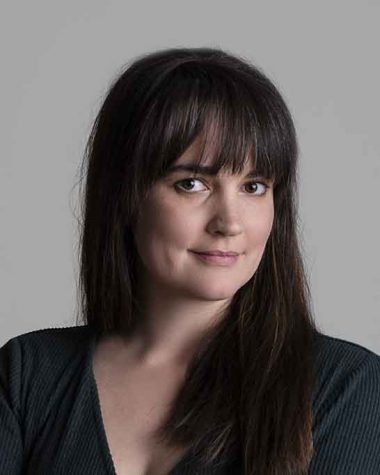
What interests you about journalism?
What I love about journalism is that it is a written and visual record of our history. As a journalist, you...

